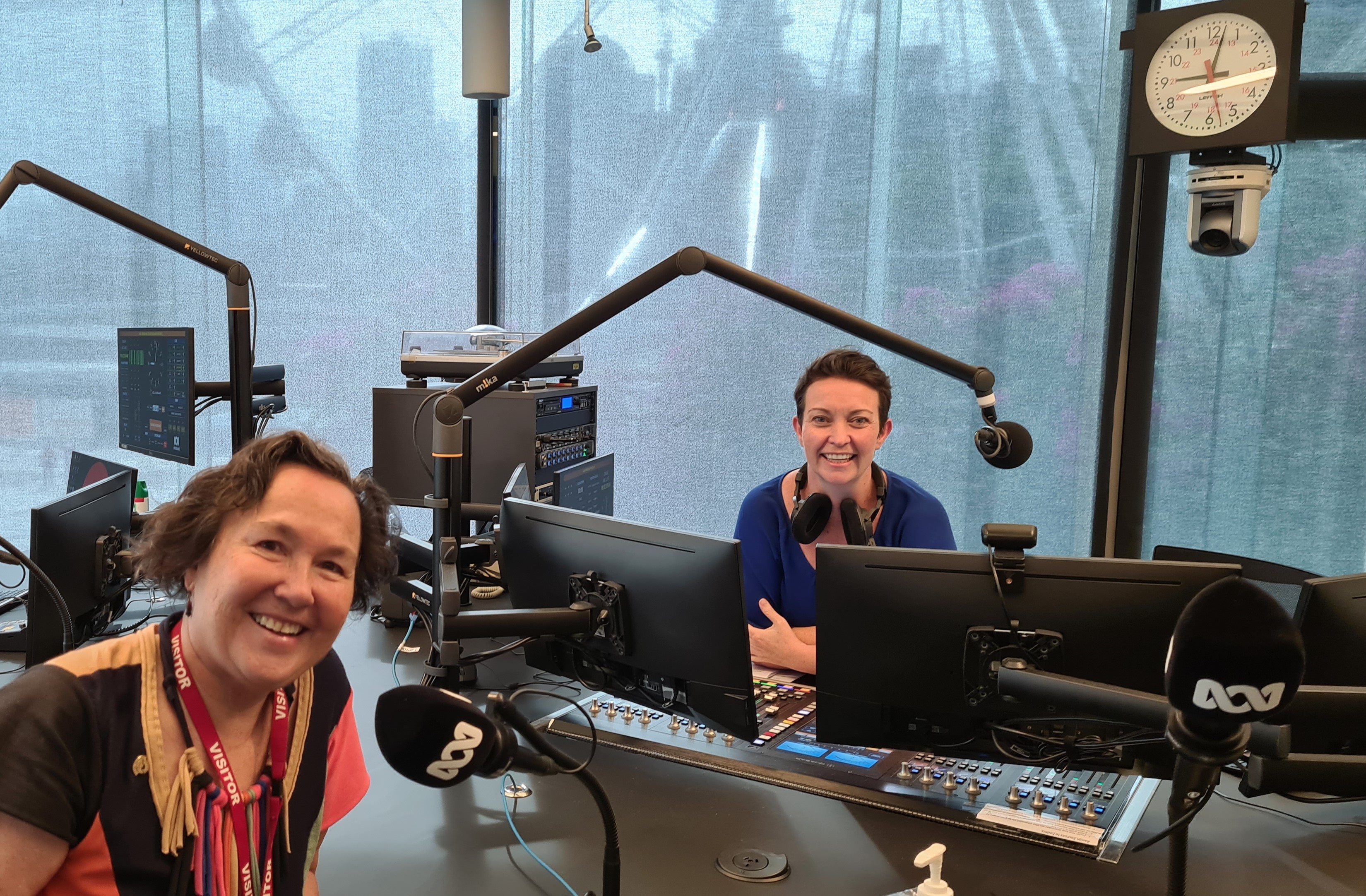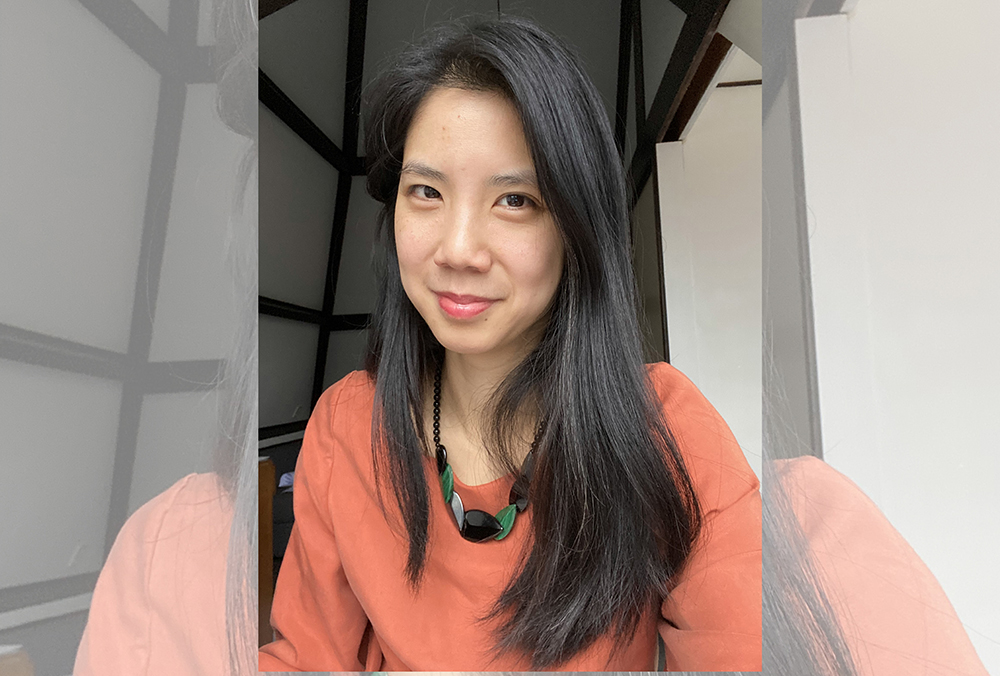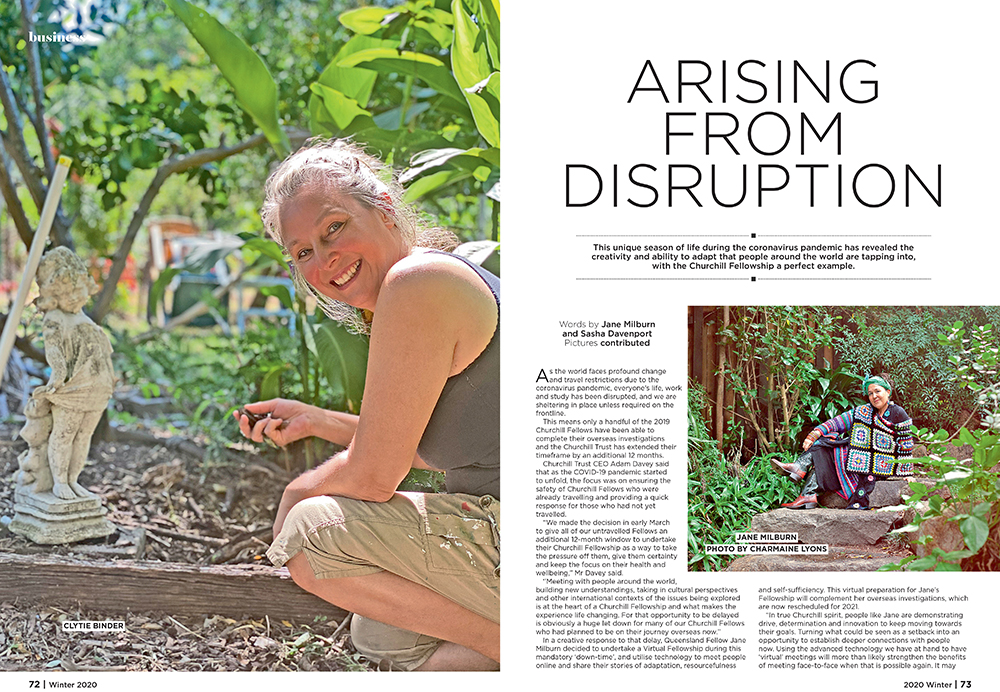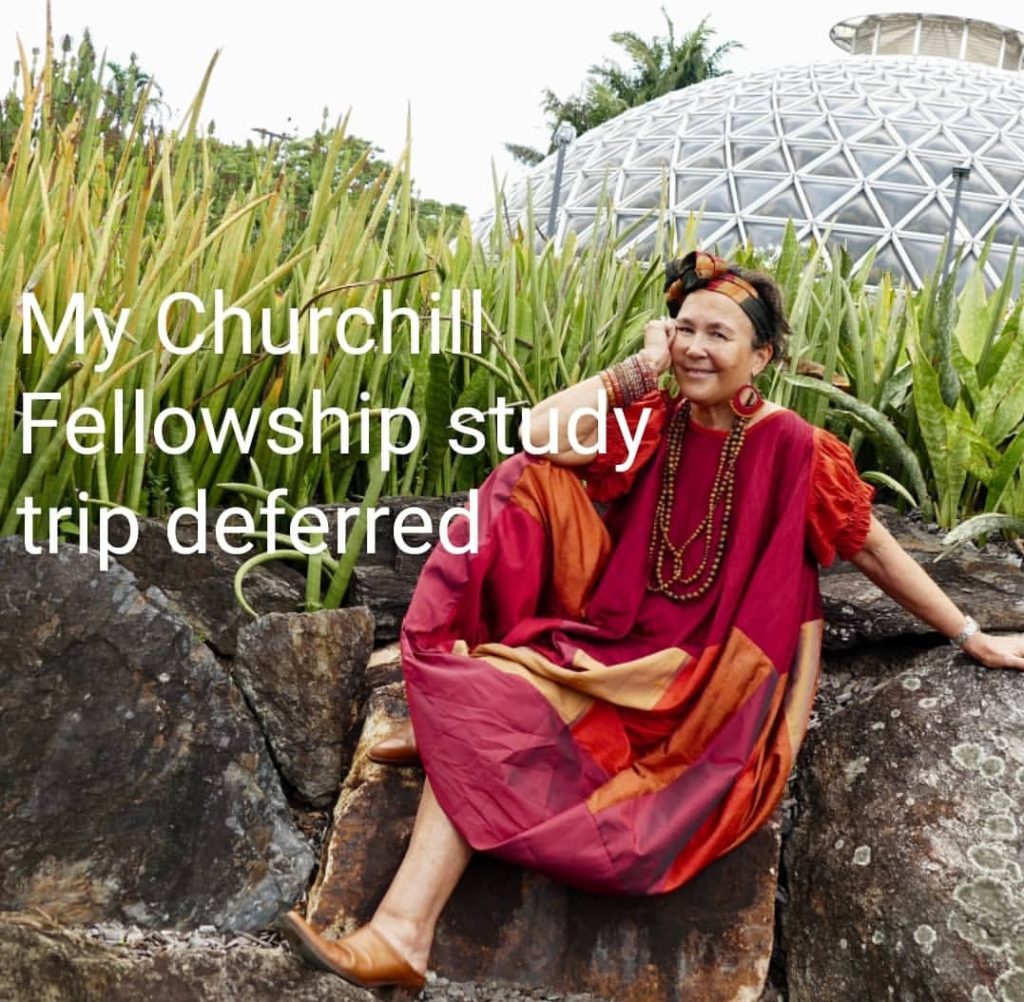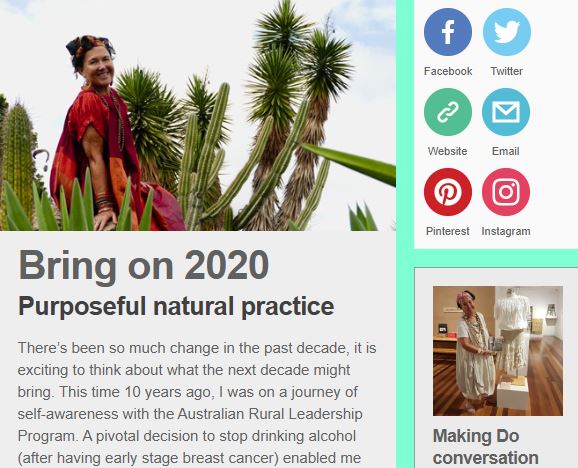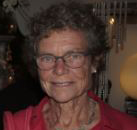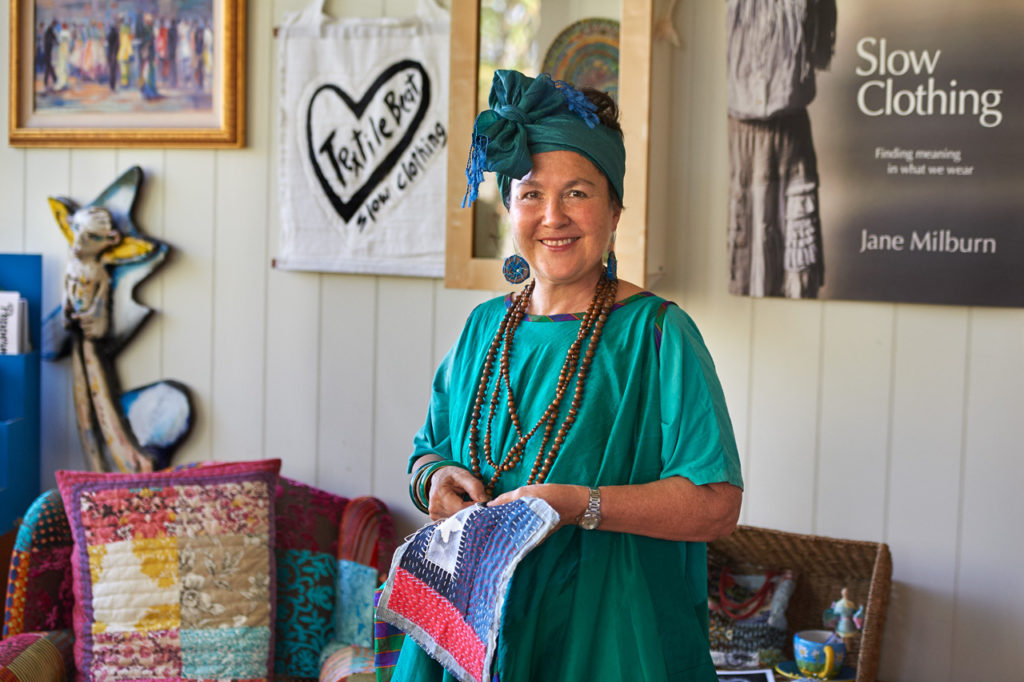Developing stitching skills and regenerating our own agency in the wardrobe are antidotes to fast fashion, according to Churchill Fellow Jane Milburn who spent two months researching upcycling actions that help reduce textile waste and enhance wellbeing.
Jane’s multidisciplinary project is at the intersection of culture, creativity, science, health and wellbeing in the way we dress. It aims to inspire social change and contribute to climate action and sustainable living across communities by shifting the culture of fast fashion consumption towards slow clothing philosophy and practice.
It highlights citizens, educators, designers, influencers and practitioners who are independent from fast fashion because they have developed their own style, regenerated their own agency and empowered themselves through fit-for-purpose wardrobe solutions that offer diverse entry points.
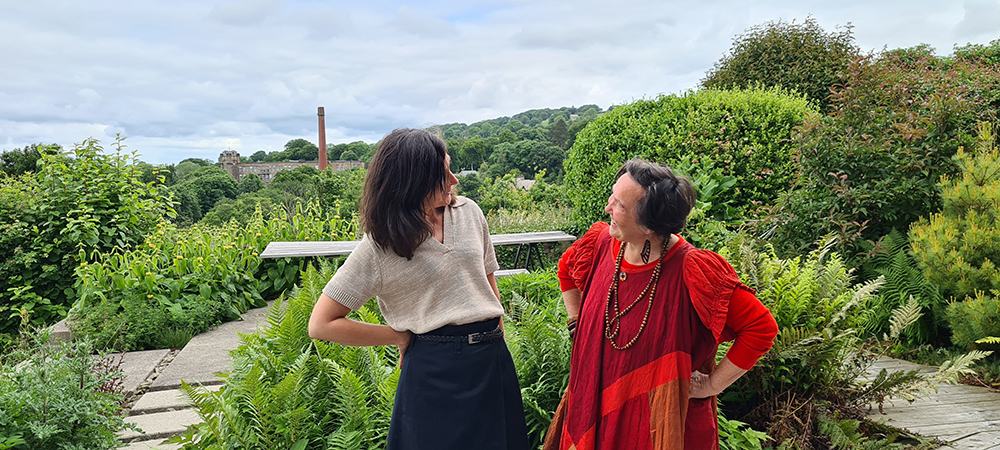
One of 55 people Jane met on her Churchill Fellowship was Professor Kate Fletcher, co-author of Earth Logic.
This fellowship is about disrupting the fashion system through the power of consumer behaviour and choices because there is no better time for the citizenry to be activated and engaged through everyday practices. It is about taking charge of our clothes, divesting ourselves from dependency on destructive systems by becoming actively engaged in and caring for what we wear rather than passively choosing from the latest offerings. It is grounded in the practices, choices and actions that reduce our material footprint: think, natural, quality, local, few, care, make, revive, adapt and salvage as outlined in The Slow Clothing Manifesto.
It is about regenerating our own agency and being empowered through skills, knowledge and desire to assemble a wardrobe of garments that we want to wear and keep in service for as long as possible. Agency is attained through simple skills to undertake acts of styling, mending, co-designing, and upcycling to appreciate and value the natural resources that go into clothes and manipulating them to fit our needs. Being more engaged with our clothes is a driver for systemic change as well as bringing with it financial, environmental, empowerment and wellbeing benefits. At its simplest, it is being resourceful and using commonsense; neither expensive nor particularly difficult.
“Across the world, I found many individuals, academics, social enterprise and small business change agents envisaging and implementing small and slow solutions that can help people solve problems in their wardrobes,” Jane said.
A summary of ways people are undertaking actions that help in REDUCING TEXTILE WASTE include:
- restyling and wearing what is already in the wardrobe
- thrifting, mending and dyeing existing clothes
- redesigning, co-designing using existing clothing and materials
- making their own clothes, some hand-stitching to further slow the process
- liberating and sharing dormant and waste textile resources within local supply chains
- skill and knowledge sharing within communities
- supporting local, regenerative natural fibre and design systems
A summary of ways people are ENHANCING WELLBEING from hands-on actions include:
- a sense of empowerment and agency over what they wear
- a sense of playfulness, joy and self-expression in having interesting clothes
- feelings of calm, relaxation, self-soothing, distraction, resilience and meditation
- comfort from slowing down, thinking through making, and being resourceful
- a felt sense of meaning and mindful connection to self, clothes and community
- a sense of contributing to broader solutions for fashion waste
- feelings of interconnection to nature and the natural world
This report includes ways that all citizens with a can-do, will-do, mindset can regenerate their agency when they allocate leisure time to resourceful creativity rather than shopping for quick fixes.
While the ‘making do’ in earlier times was born from lack of resources and most people did it, nowadays ‘making do’ is more likely to be a response to excess and, ironically, it may be the privileged who are currently most engaged. Modern ‘making do’ is more about choices and actions to be resourceful and sustainable, more likely about saving the planet than specifically needing to save money.
“The people I met have become more self-reliant in various ways by developing skills and insights to make themselves independent of the fashion supply chain. They are reclaiming control of their wardrobe by being more hands-on in creatively making, mending, redesigning or restyling clothes already around them to reduce waste and enhance wellbeing. They are empowered through what they wear and uninterested in slavishly following trends that provide fleeting satisfaction at best.
“Through this Fellowship, I tapped into the citizenry swimming against the all-consuming tide. They are engaging in hands-on processes that enable a consumption pause, taking time for self-reflection and working with what is at hand before making considered decisions in any new purchases.
“These citizens are showing that culture change is possible when we inform ourselves and learn skills of independence and resourcefulness, and invest time in the process. “
RECOMMENDATIONS from Jane’s Fellowship are:
- More education around hand-sewing skills for mending, tinkering and mindfulness
- More opportunities to engage and share clothing resources, skills and creativity
- Wellbeing services based around regenerating agency in the wardrobe
- Redesign services that enable engagement and co-design
- More engagement through opportunities to practice permaculture and citizen science
- More awareness-raising of unsustainable consumer culture and greenwashing
- Localisation to promote and enable place-based fibre systems and culture
This Fellowship is a step towards changing the consumer culture of dependence on global fast fashion supply chains to one of independent flourishing of local creativity, engagement and connection through what we choose to wear.
It brings focus to the concept of dressing for health and wellbeing rather than status and looks, and outlines how engaged citizens can gain wellbeing benefits by regenerating their own agency using what is around them and, in so doing, contribute to reducing the textile waste burden.
“We can’t change the world, but what we can do is change the way we live through our everyday practices. Those small decisions and choices for living simply are within our means, they are the steps to leading a modest yet fulfilling life in harmony with the natural world.”
Read the summary Jane Milburn Churchill Fellowship Project Summary September 2022 online
Read the full report Jane Milburn Churchill Fellowship Report 28 September 2022 online
Download Jane Milburn’s full report from the Churchill Trust website here.
